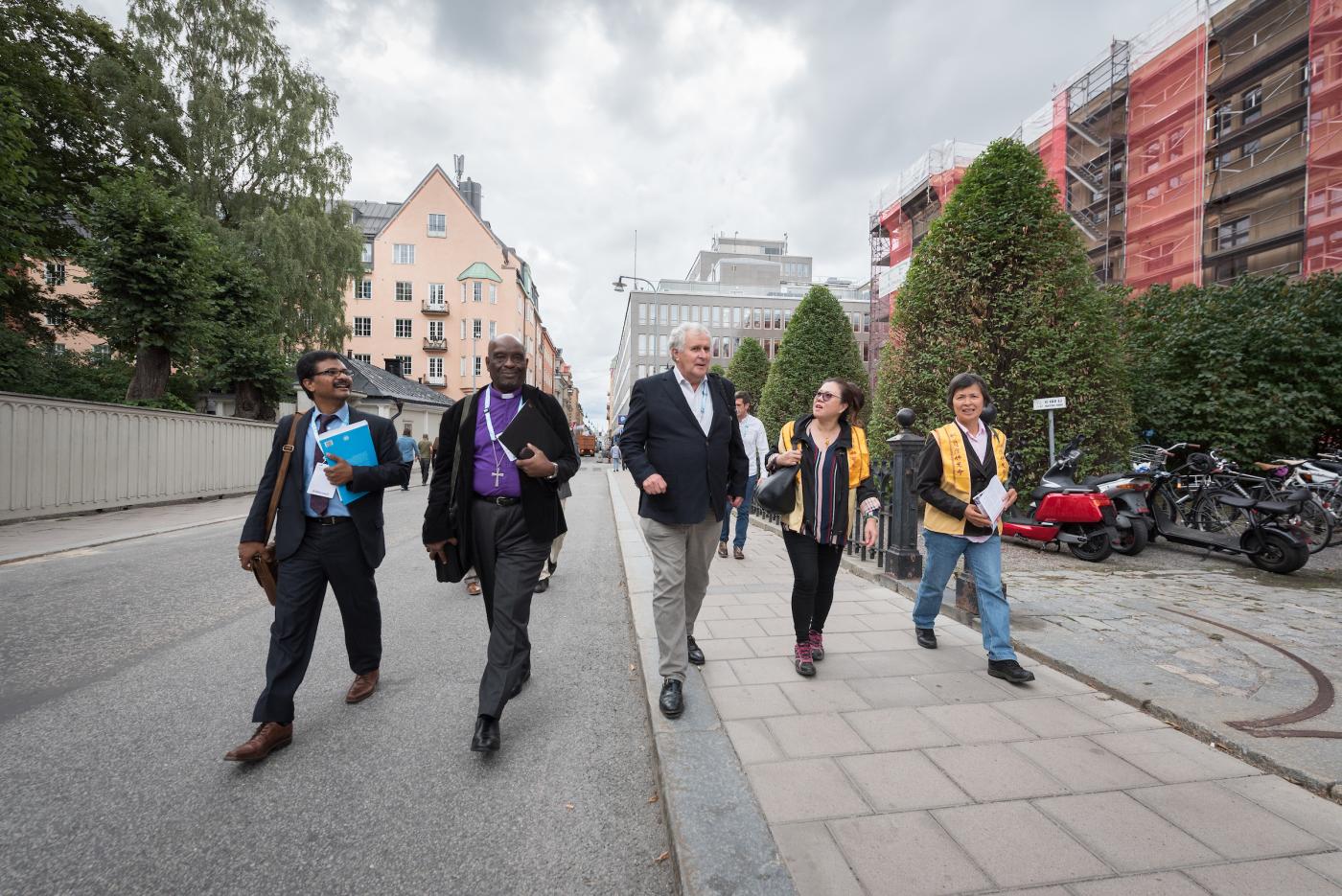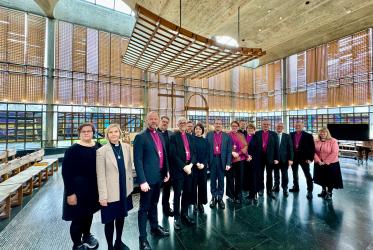By Albin Hillert*
“Water is a gift of God, a gift of creation, and it is necessary for survival,” said World Council of Churches (WCC) general secretary Rev. Dr Olav Fykse Tveit, introducing through a video message a World Water Week public showcase on “Water and Faith: Acting in Partnership to achieve SDG 6” in Stockholm, Sweden.
“We are called to be stewards of the resources of this world,” Tveit added. “Water is to be preserved, taken care of, and shared.”
“There are three basic objectives as we come together today,” continued Dinesh Suna, coordinator of the WCC-Ecumenical Water Network (WCC-EWN), “to recognize the contributions of faith communities in work for clean water and sanitation for all, to build stronger alliances between different sectors, and to build a stronger platform for concrete action together.”
“The issue of water is a justice issue, and the WCC-EWN sees it as such,” said Bishop Arnold Temple, chairperson of the WCC-EWN, and added, “so what we do and say here, is to call on all to speak up for water.”
Katarina Veem, director of the Swedish Water House, reflected on the challenges of addressing climate issues in general, and flagged water as a key entry-point for strong collaboration between various sectors.
“Climate change is felt and noticed and experienced through water first and foremost”, said Veem, noting simply that it’s “too much, too little or too dirty.”
Veem then added, “It’s often very difficult to talk about climate perspectives, but when we can talk about water, it becomes real for everyone.”
Faith not just about words, but translating them into action
Mufti Mohammad Zoubi, Mufti of Amman, Jordan, reflected on the challenge of securing access to clean water and sanitation in a context where water is already scarce at the outset.
For us, the Mufti said, “taking care of water is both a religious duty and a societal responsibility.”
“In this world we are like passengers on the same ship,” added the Mufti. “How we deal with water, it affects us all, so we have to maintain and safekeep this gift.”
“Faith is not just about words,” the Mufti then stressed, “but most importantly about what you believe and how it translates into your actions. What we teach as religious communities is closely adhered to, and therefore it is our duty as people of faith to move from theory and words to practicalities and action.”
“In speaking up for water, we speak up for God, and we save lives,” Bishop Temple concurred.
Reflecting on the outcomes of the day, Suna then noted two very concrete items.
“The WCC and other faith-based organizations have now been encouraged by the UNESCO World Water Assessment Programme’s director to submit reports and data for consideration in the next report on progress towards SDG 6,” said Suna, and added, “and we also see discussions today about establishing a Swedish water cluster, to consist of the Swedish Water House, Church of Sweden and other faith-based organizations in Sweden.”
The “Water and Faith” day is organized by the Stockholm International Water Institute, Global Water Partnership, World Council of Churches, Swedish Institute Alexandria, Church of Sweden, and Deutsche Gesellschaft für Internationale Zusammenarbeit GmbH (GIZ).
Learn more about the WCC Ecumenical Water Network
Free photos: Faith and Water Day, World Water Week 2018
Audio interview with Dinesh Suna and Bishop Temple: How do we achieve water justice for everyone? (by UCB News)
Programme: Water and Faith Acting in Partnership to Archive SDG 6
*Albin Hillert is communication officer at the World Council of Churches






